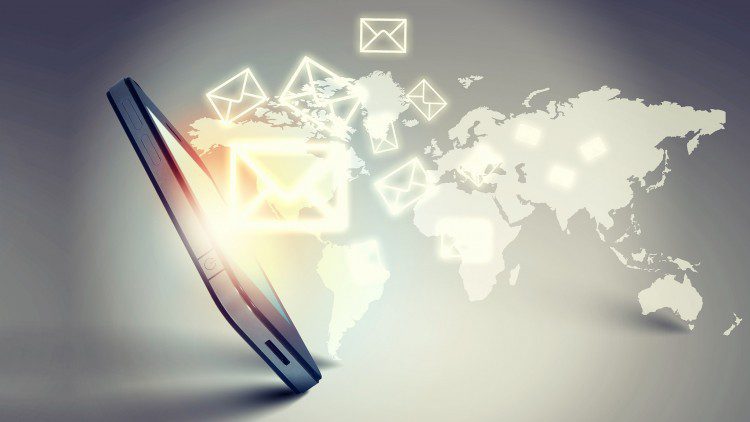Verringern Sie die Zeit, die Ihnen E-Mails stehlen, um die Hälfte

- Beschreibung
- Lehrplan
- FAQ
- Bewertungen
If you receive lots of e-mail and demands on your time, this course shows you 7 proven ways to get back full control of your e-mail – and create more time for the high value tasks.
·Just using the ‘One-Touch Inbox’ technique can HALVE the time you’d normally take.
·‘Batching’ and other great techniques reduce the stress associated with overload.
·The difference that the times of day when you handle e-mail can make to concentration
The video demos are done in MS Outlook 2010 – but it doesn’t matter which software you use, the course gives you proven techniques to reduce the time spent with e-mail. And you’ll get more mileage out of whatever system you use now.
One third of office workers suffer from ‘e-mail stress’. It’s even been called a plague. We’re not just overwhelmed by the volume of e-mail but we lose focus on the productive activities of our jobs. The ‘7 Keys To E-mail Control’ help you to actually be more focused and to be able to spend time on the things that move your job, and the business, forward.
According to the BBC Money Programme people can spend up to half the working day going through the inbox! But not if you follow the 7 Key principles outlined in this course. You’ll not only shave hours off the time you spend with e-mail, you’ll get precious time and energy back for yourself.
It comes with a workbook which gives you a rapid overview of the 7 Keys and then goes on to explain the theory behind it all – after you’ve made some immediate gains from the 12 short, 5 minute videos.
If it’s important to you or your team to handle e-mail volumes better and faster and with less effort so you can concentrate on the big issues that count, this is the right course for you.
-
2Key 1, Choose Your MediaVideo-Lektion
It’s all about knowing when to use e-mail and when to use other means of communication. E-mail works best for simple messages – clear instructions, logistical information, attaching a file or document, or sending brief, general information.
It doesn’t work well for sensitive communications, lengthy messages or protracted, complex dialogue or any kind of communication that really needs you to manage people’s reactions.
-
3Key 2: Batch Your E-MailVideo-Lektion
When you batch or ‘cluster’ your tasks, the brain works faster. You gain focus.
In the case of e-mail it means setting aside specific times to work on your e-mail. Break the habit of responding to each and every e-mail the moment it comes in.
Read and respond to e-mails only during your chosen times. Whether you choose once an hour or a couple of times a day depends on the nature of your job. Once you do open your mail, work through it to completion.
-
4Key 3, Use The ´One Touch´ InboxVideo-Lektion
-
5Key 4 Making the Subject Line Work For YouVideo-Lektion
-
6Key 5, Use Clear LanguageVideo-Lektion
As we have more and more media choice available to us we’re expected to respond instantly.
So just like in sms text messages we often cut corners, we misspell and we abbreviate for speed. These abbreviations don’t always have a common base and don’t use basic grammar.
In the workplace your aim is to save yourself time from repetitive, low value tasks.
You don’t want to send several e-mails to explain yourself or send several requests in order to understand – or worse still exchange time consuming e-mails based on misunderstanding.
In the long run it’s more efficient to use clean, clear, simple and conventional language.
-
7Key 6, Use E-mail EconomicallyVideo-Lektion
Be selective with your use of the “cc” option and “reply to all”. They are seldom vital or even necessary.
From what we’ve learned about time, motion and energy, a good first step is if Sie send less e-mail, you’ll eventually receive less.
Don’t send an e-mail to someone when you really don’t need to.
-
8Key 7, Don´t Engage In Flame MailVideo-Lektion
If you receive an e-mail which upsets you --- DO NOT respond right away. Close the mail and do something else.
NEVER ‘trade emotions’ with e-mail. E-mail is NOT the correct medium for venting frustrations or pointing out failures or proving yourself right.
Apart from the time spent sending and reading this kind of mail, the time lost in sitting, thinking and stewing over the content is incalculable.
When you do respond, despite any urge to ‘set the record straight’ or to let someone know how you feel, give only POLITE facts and specific information.
Then find a different medium to resolve the problem.
Needless to say, Sie would never originate a flame mail yourself. Even when someone ‘deserves it’.

Loslegen
Akademie

Cookies sind kleine Datendateien, die eine Website heimlich an Ihren Computer sendet, oft in Form von Textdateien oder Bilddateien. Cookies ermöglichen es uns, Informationen über Ihren Browser zu speichern oder abzurufen, die möglicherweise zur Identifizierung Ihrer Person verwendet werden können. Diese Daten werden normalerweise verwendet, damit die Website wie erwartet funktioniert. Sie haben die Möglichkeit, einige Cookies abzulehnen, da wir Ihre Privatsphäre wertschätzen. Um mehr zu erfahren und Ihre Einstellungen zu ändern, klicken Sie auf einen der Kategorietitel unten. Das Blockieren bestimmter Arten von Cookies kann hingegen Ihre Website-Erfahrung und Ihren Zugang zu Diensten erheblich beeinträchtigen.
Diese Cookies ermöglichen es der Website, erweiterte Funktionalität und Personalisierung bereitzustellen. Sie können von uns oder von Drittanbietern gesetzt werden, deren Dienste wir auf unseren Seiten eingebunden haben. Wenn Sie diese Cookies nicht zulassen, funktionieren einige oder alle dieser Dienste möglicherweise nicht ordnungsgemäß.
Der Grund für die Existenz dieser Cookies sind Cookies, die wir auf dieser Website gesetzt haben, damit Sie unsere Inhalte mit Ihren Freunden und Netzwerken teilen können. Sie können Ihren Browser über verschiedene Websites hinweg verfolgen und ein Profil Ihrer Interessen erstellen. Dies kann Einfluss auf das Material und die Nachrichten haben, die Sie auf anderen Websites sehen. Wenn Sie diese Cookies nicht akzeptieren, können Sie diese Freigabetools möglicherweise nicht nutzen oder sehen.
Auf unserer Website können Cookies von Werbepartnern eingesetzt werden, um ein Profil Ihrer Interessen zu erstellen und relevante Werbung auf anderen Websites anzuzeigen. Sie erfassen keine personenbezogenen Daten, basieren jedoch auf der eindeutigen Identifizierung Ihres Browsers und Internetgeräts. Wenn Sie diese Cookies ablehnen, erhalten Sie weniger gezielte Werbung.
Diese Cookies sind für den Betrieb der Website unbedingt erforderlich und können in unseren Systemen nicht deaktiviert werden. Sie werden normalerweise nur als Reaktion auf von Ihnen durchgeführte Aktionen festgelegt, die einer Anforderung von Diensten gleichkommen – etwa das Festlegen Ihrer Datenschutzeinstellungen, das Anmelden oder das Ausfüllen von Formularen. Sie können Ihre Browsereinstellungen ändern, um diese Cookies zu blockieren oder Sie darüber zu informieren. Einige Teile der Website funktionieren dann jedoch nicht ordnungsgemäß. Diese Cookies speichern keine Informationen, die eine persönliche Identifizierung einer Person ermöglichen.
Das Zählen von Besuchen und das Messen von Aktivitäten ist für die Aufrechterhaltung einer gut funktionierenden Website unerlässlich. Diese Cookies ermöglichen es uns, genau das zu tun, indem sie Informationen darüber bereitstellen, welche Seiten am beliebtesten bzw. am wenigsten beliebt sind, wie sich Benutzer auf der Website bewegen usw. Ohne diese Cookies könnten wir die Leistung unserer Website nicht verbessern.

Treten Sie unserem inneren Kreis bei und verpassen Sie nichts
Neue Kurse, neue Informationen und neue Fähigkeiten haben das Potenzial, Ihr Leben drastisch zu verbessern. Verpassen Sie nichts und werden Sie automatisch informiert.
* Wir hassen Spam und versprechen Ihnen, nichts zu versenden, was Sie nicht möchten. Mit Ihrer Anmeldung stimmen Sie unserem zu Datenschutz-Bestimmungen.









